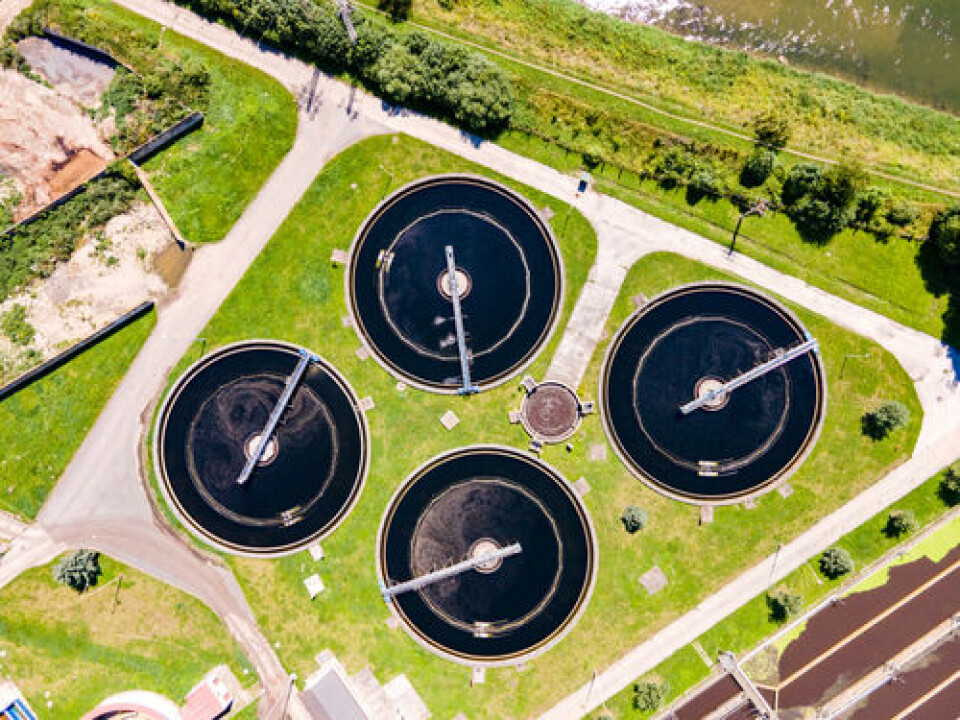-
More than 5,000 French communes use AI to identify poor rubbish sorting
Badly-sorted rubbish can cost millions so communes are turning to high-tech solutions
-
Tefal launches nationwide pan collection scheme in French supermarkets
Shoppers can receive a discount voucher for recycling used cooking utensils - all brands accepted
-
French firm makes first ‘fibre-to-fibre’ recycled polyester T-shirt
Advance means that tonnes of clothes normally thrown away could be re-used
France must manage water better, researchers say after summer droughts
Solutions to shortages include recycling wastewater, collecting rainwater and removing salt from seawater

Researchers are calling on the government to implement existing solutions to water shortages after a summer of droughts.
July was the driest month in France since 1961, with all metropolitan departments having drought warnings or water limitations.
“We’re going to have to completely revise the way we manage water,” said Fabienne Trolard, research director at the National Research Institute for Agriculture, Food and Environment (INRAE). “We’ll have to behave more like the ant than the grasshopper, and save on water at every level.” In the fable, the carefree grasshopper comes begging for food once summer is over from the ant, who has been working to build a reserve for the winter.
Reuse wastewater
One solution is to reuse wastewater.
Utility company Veolia has already announced it will implement reuse systems at 30 of its French wastewater treatment plants, with a long-term aim of 100 sites.
This is instead of simply releasing treated water back into rivers and seas.
The recycled water will initially replace tap water that is used for various purposes in the running of the plants, but once granted authorisation, it could have industrial and agricultural uses.
Julie Mendret, researcher at the Institut Européen des Membranes at the University of Montpellier, said: “There will always be wastewater. It’s a permanent water source we need to exploit as best we can.”
Less than one percent of water in France comes from reused wastewater, compared to 8% in Italy and 14% in Spain. “We haven’t been sufficiently confronted with a lack of water until now.”
Administrative burden, uncompetitive pricing and public perception are also hurdles.
An experiment in Vendée led by Veolia and the local state drinking water service will go further, and use water from the Sables d’Olonne treatment plant to produce drinking water. According to Veolia, nine out of 10 litres of drinking water in the department are produced from surface water that is particularly sensitive to the effects of climate change.
Treated wastewater will be recovered for further treatment in a refining plant, before being transported to the Jaunay dam, where it will be released into an area with vegetation where it can ‘return to its natural state’.
From there, it will flow into a reservoir, before ending up in the local drinking water production plant.
Read more: French town to become first in Europe to recycle used water
The Jourdain project will be up and running by 2024. It is a first in France, but Namibia has been producing drinking water from treated wastewater since 1968.
“The problem is not technological, as we know how to treat water and make it drinkable,” Dr Trolard said. Treated wastewater can currently be used under strict conditions for irrigation and watering green spaces. Since March, a decree has allowed new uses to be tested, such as street cleaning.
It is not the solution everywhere, Dr Mendret said. “It’s very relevant to coastal areas, where water treatment plants often release effluent into the sea.”
For inland plants, the water they release into rivers can be necessary for maintaining water levels and biodiversity.
Reuse rainwater
Another possible solution is to collect and reuse rainwater. Here, too, France lags behind its neighbours, and there are strict rules on how it can be used (see page 30).
Dr Trolard said: “We should look at building homes with a dual water supply system, like they do in Belgium and Germany, to use rainwater directly in the house.”
She believes lobbying and regulations are to blame for France’s lethargy. “Researchers have been sounding the alarm for at least 15 years, saying we need to run tests. You can reduce water use by up to 60% in a house with a dual supply system.”
Dr Trolard said politicians had failed to understand that droughts would become the ‘new normal’. “They don’t have the scientific grounding in their schooling.”
Remove salt from seawater
Some politicians have also called on France to use desalination to remove salt from seawater and produce drinking water.
This is already used in some parts of overseas France, but Dr Trolard said it should only be a last resort.
For every litre of drinking water produced, there are 1.5 litres of brine, a by-product often released back into the ocean, damaging the ecosystem. “The energy consumption is also very high.”
France might first want to look closer to home. Some 20% of drinking water is currently lost to leaks in the network.
Related links
Residents in French town donate pool water for parched green spaces
French drought causes early and poor apple harvest in Brittany
Should France ban private swimming pool use amid drought crisis
























